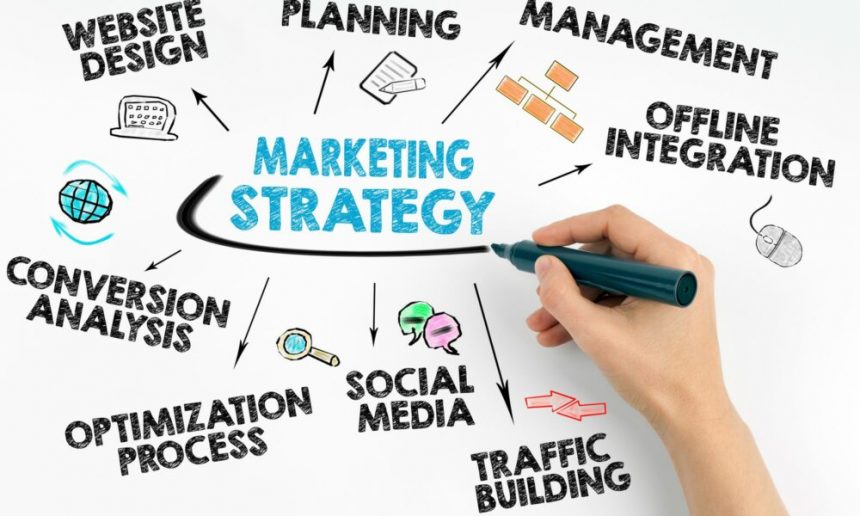In today’s fast-paced digital world, businesses constantly seek ways to stand out and effectively reach their target audience. With the ever-evolving nature of online platforms and search engine algorithms, it’s crucial to stay updated on the latest marketing strategies and technologies. This comprehensive guide will explore the key elements of modern digital marketing, helping you navigate the complex landscape and achieve your business goals.
Understanding the Foundations of Digital Marketing
Before diving into advanced techniques, it’s essential to grasp the basics of digital marketing. This multifaceted approach encompasses various channels and methods to promote products, services, and brands online.
The Core Components
- Search Engine Optimization (SEO)
- Content Marketing
- Social Media Marketing
- Email Marketing
- Pay-Per-Click (PPC) Advertising
- Affiliate Marketing
Each of these components plays a vital role in creating a well-rounded digital marketing strategy. By understanding how they work together, you can create a powerful online presence that drives traffic, engagement, and conversions.
The Power of Search Engine Optimization
Search Engine Optimization (SEO) is a fundamental aspect of digital marketing that focuses on improving a website’s visibility in search engine results pages (SERPs). By optimizing your website’s content and structure, you can increase organic traffic and attract more potential customers.
Key SEO Techniques
- Keyword Research: Identifying and targeting relevant search terms
- On-Page Optimization: Optimizing content, meta tags, and HTML elements
- Technical SEO: Improving website speed, mobile-friendliness, and crawlability
- Link Building: Acquiring high-quality backlinks from reputable sources
Implementing these techniques can significantly boost your website’s ranking and visibility. However, it’s important to note that SEO is an ongoing process that requires continuous effort and adaptation to search engine algorithms.
Content Marketing: The Heart of Digital Strategy
Content marketing is the backbone of successful digital marketing campaigns. By creating valuable, relevant, and consistent content, businesses can attract and retain a clearly defined audience, ultimately driving profitable customer action.
Types of Content
- Blog Posts
- Videos
- Infographics
- Podcasts
- Ebooks and Whitepapers
- Case Studies
Each type of content serves a specific purpose and appeals to different segments of your audience. By diversifying your content strategy, you can engage users at various stages of the buyer’s journey and establish your brand as an authority in your industry.
Leveraging Social Media for Brand Growth
Social media platforms have become indispensable tools for businesses to connect with their audience, build brand awareness, and drive website traffic. With billions of active users across various platforms, social media marketing offers unparalleled opportunities for engagement and growth.
Effective Social Media Strategies
- Consistent Branding: Maintain a cohesive visual identity across platforms
- Engaging Content: Create and share content that resonates with your audience
- Community Management: Actively interact with followers and address their concerns
- Paid Advertising: Utilize platform-specific ad tools to reach a wider audience
- Influencer Partnerships: Collaborate with industry influencers to expand your reach
By implementing these strategies, businesses can create a strong social media presence that complements their overall digital marketing efforts.
Email Marketing: Nurturing Customer Relationships
Despite the rise of new marketing channels, email marketing remains one of the most effective ways to nurture leads and maintain customer relationships. With its high ROI and ability to deliver personalized content, email marketing is a crucial component of any comprehensive digital strategy.
Best Practices for Email Marketing
- Build a Quality Email List
- Segment Your Audience
- Craft Compelling Subject Lines
- Personalize Content
- Optimize for Mobile Devices
- Track and Analyze Performance
By following these best practices, businesses can create email campaigns that drive engagement, conversions, and customer loyalty.
The Role of Artificial Intelligence in Digital Marketing
Artificial Intelligence (AI) is revolutionizing the digital marketing landscape, offering new ways to analyze data, personalize content, and automate tasks. As AI technology continues to advance, marketers are finding innovative applications to enhance their strategies and improve ROI.
AI Applications in Digital Marketing
- Chatbots for Customer Service
- Predictive Analytics for Customer Behavior
- Content Generation and Optimization
- Personalized Product Recommendations
- Ad Targeting and Optimization
One notable application of AI in digital marketing is what is SEO Core AI, which uses machine learning algorithms to analyze and optimize various aspects of SEO strategies. This technology helps marketers make data-driven decisions and improve their website’s search engine rankings more efficiently.
Measuring Success: Analytics and Key Performance Indicators
To ensure the effectiveness of your digital marketing efforts, it’s crucial to track and analyze key performance indicators (KPIs). By monitoring these metrics, you can identify areas for improvement and make data-driven decisions to optimize your strategies.
Important KPIs to Track
| KPI | Description |
| Website Traffic | The number of visitors to your website |
| Conversion Rate | The percentage of visitors who complete a desired action |
| Bounce Rate | The percentage of visitors who leave after viewing only one page |
| Customer Acquisition Cost | The cost of acquiring a new customer |
| Return on Investment (ROI) | The ratio of net profit to the cost of investment |
| Engagement Rate | The level of interaction with your content or brand |
Regularly reviewing these KPIs will help you refine your digital marketing strategies and achieve better results over time.
Adapting to the Future of Digital Marketing
As technology continues to evolve, so do the possibilities in digital marketing. Staying ahead of the curve and adapting to new trends is essential for maintaining a competitive edge in the digital landscape.
Emerging Trends to Watch
- Voice Search Optimization
- Augmented Reality (AR) Marketing
- Video Marketing
- Influencer Marketing
- Privacy-Focused Marketing
By keeping an eye on these trends and incorporating them into your digital marketing strategy, you can position your business for long-term success in the ever-changing online world.
Putting It All Together
Mastering the digital landscape requires a comprehensive approach that integrates various marketing channels and strategies. By understanding the foundations of digital marketing, leveraging AI and analytics, and staying adaptable to emerging trends, businesses can create a powerful online presence that drives growth and success.
Remember that digital marketing is an ongoing process that requires continuous learning and adaptation. As you implement these strategies, always focus on providing value to your audience and maintaining authenticity in your brand messaging. With persistence and creativity, you can navigate the complex digital marketing landscape and achieve your business goals.








